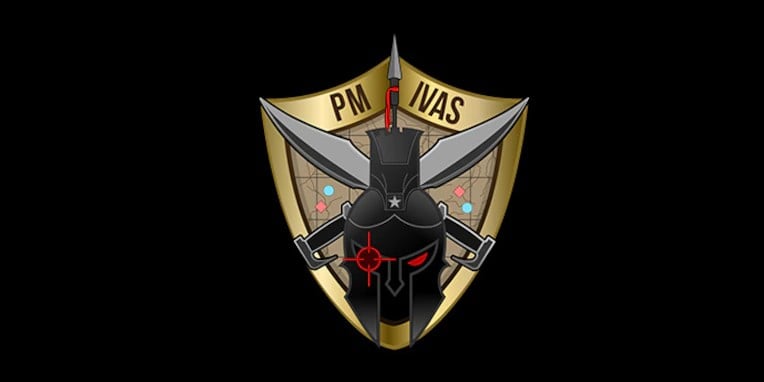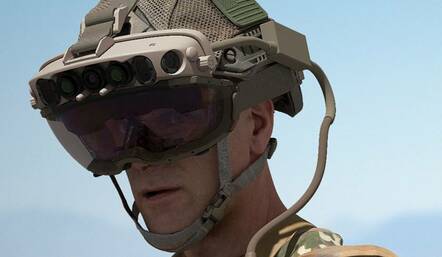US Army Slows ~$20bn Project To Put Microsoft's HoloLens VR Headsets Into The Field

The US Army has delayed a massive rollout of Microsoft's HoloLens virtual reality headsets.
The Integrated Visual Augmentation System (IVAS) project kicked off in 2018 with tests of HoloLens headgear in the hope the VR goggles would "increase lethality by enhancing the ability to detect, decide and engage before the enemy". That deal saw $480M flow to Microsoft and doubled its HoloLens sales.
The Army clearly like what it virtually saw, because in March 2021 it moved from prototype to production and "rapid fielding". Microsoft said the deal could be worth as much as $22 billion.
On Thursday, the project was paused, without much of an explanation.
"The Army decided to shift the IVAS Operational Test and fielding to a date later in FY22," reads an announcement from Project Executive Office Soldier, a part of the US Army dedicated to procurement and equipping soldiers.
- Through the Looking Glass – holographic display hardware is great, but it's not enough
- Trust Facebook to find a way to make video conferencing more miserable and tedious
- Facebook tries to save face by recalling itch-inducing Oculus Quest 2 VR headset foam
While the statement does not offer a reason for delays in the project, it includes this sentiment: "This decision allows the Army and Industry team to continue to enhance the IVAS technology platform ensuring Soldiers achieve overmatch in Multi Domain Operations."
The document also reveals: "Army conducted an Adversarial Electronic Warfare and Cybersecurity Test in September 2021 and plans to execute testing regularly throughout FY22."
Might those words suggest that work to date has not gone as well as hoped?
Whatever the state of the project, the statement assures us that the Army "is fully committed to its partnership with Microsoft to advance specific technologies to meet operational requirements and maximize warfighter impact." It all sounds very comforting.
The statement also offers a new timeline for the project, with operational tests scheduled for May 2022 and the first operational unit equipped with IVAS kit scheduled to go into action in September of the same year.
And what if there is no theatre of combat in which US warfighters can achieve overmatch, maximize impact and increase lethality by September next year? Sadly, history tells us it won't be long before something comes along. ®
From Chip War To Cloud War: The Next Frontier In Global Tech Competition
The global chip war, characterized by intense competition among nations and corporations for supremacy in semiconductor ... Read more
The High Stakes Of Tech Regulation: Security Risks And Market Dynamics
The influence of tech giants in the global economy continues to grow, raising crucial questions about how to balance sec... Read more
The Tyranny Of Instagram Interiors: Why It's Time To Break Free From Algorithm-Driven Aesthetics
Instagram has become a dominant force in shaping interior design trends, offering a seemingly endless stream of inspirat... Read more
The Data Crunch In AI: Strategies For Sustainability
Exploring solutions to the imminent exhaustion of internet data for AI training.As the artificial intelligence (AI) indu... Read more
Google Abandons Four-Year Effort To Remove Cookies From Chrome Browser
After four years of dedicated effort, Google has decided to abandon its plan to remove third-party cookies from its Chro... Read more
LinkedIn Embraces AI And Gamification To Drive User Engagement And Revenue
In an effort to tackle slowing revenue growth and enhance user engagement, LinkedIn is turning to artificial intelligenc... Read more


